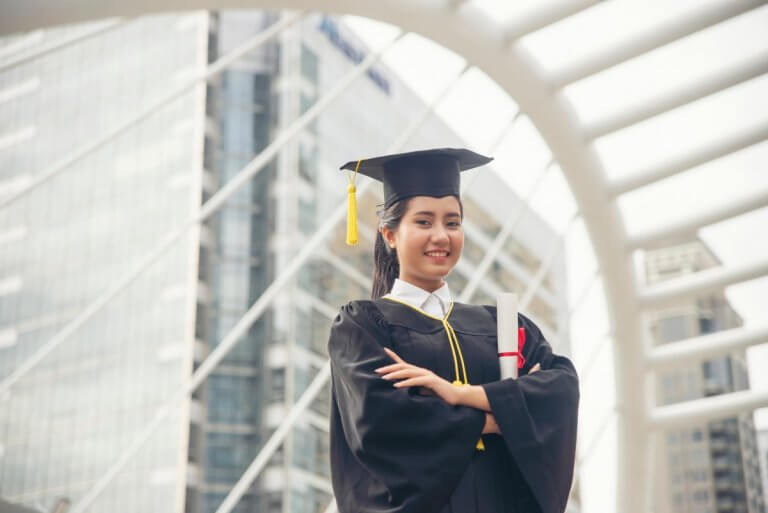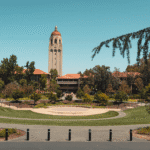
Tensions are currently rising among two of the biggest economies in the world: China and the US.
After the US began investigating Chinese trade policies in 2017, under the Trump administration, tariffs were imposed on billions of dollars worth of Chinese products.
This caused growing conflict among the two countries as Beijing responded by imposing high tariffs of their own, and accused the US of starting “the largest trade war in economic history”, according to BBC.
Despite both countries agreeing to put a halt to implementing new trade tariffs back in December to discuss how to proceed further, the US has now doubled tariffs on $200bn worth of Chinese products, causing the issue to get even more heated.
So what does this all mean for Chinese students?
While the trade war does not directly affect international students or higher education in general, the hostile relationship between the two countries could make it even more difficult for them to enter the country, as well as receiving their H-1B visas.
According to South China Morning Post, Chinese students have been seeing increasingly long delays in getting their visas to the US approved under the Trump Administration.
“Several students in science and technology interviewed by the South China Morning Post said their visa wait time ran from eight to 10 weeks.
“Before US President Donald Trump took office in January 2017, they said they heard from friends that administrative processing was not as common, and the wait time typically ran from three to six weeks.”
Inside China Tech: Doors to America are closing for Chinese graduates in hi-tech fields – The growing number of Chinese students in hi-tech fields face tightening US visa controls – Sounds like an emerging opportunity for the EU to catch up #AI #Biotech… https://t.co/FEDSchriVS pic.twitter.com/6Z9TA7ujKk
— Dr. Thomas Wilckens (@Thomas_Wilckens) May 4, 2019
University administrators in the country may be feeling anxious with the growing tensions between the two countries, and are probably well-aware of the repercussions if foreign student enrollment drops.
The US cannot afford for the trade war to affect higher education, an enormous and profitable sector in the country, due in part to its high international student numbers and position as one of the top study abroad destinations in the world.
Chinese students contribute nearly US$13 billion annually to the US economy, according to NAFSA: Association of International Educators, as reported by South China Morning Post.
According to Foreign Policy, “With more than 360,000 Chinese students enrolled in U.S. institutions, Chinese visitors account for one-third of the foreign undergraduates and graduate students studying in the United States.”
360,000 Chinese students make up 1/3 of total international students at American universities. Could the trade dispute threaten these numbers? What would be the impact for US schools? Perspective from @profmusgrave in@ForeignPolicyhttps://t.co/ydIAva8qCl
— eduFair China (@eduFairChina) May 23, 2019
Yale University has since spoken up amidst the conflict to voice their support for international students and ease their concerns.
South China Morning Post recently reported, “In an open letter to Yale University’s 5,500 international students and academics on Thursday, university president Peter Salovey said he had been working with heads of the 62-member Association of American Universities in the US and Canada to urge federal agencies to clarify “concerns they have about international academic exchanges”.
Salovey recognised the contributions that were made by international students to the university’s community and made a promise to continue welcoming them.
“Our insistence on welcoming talented colleagues from around the world does not detract from our dedication to the integrity of our research. Yale takes seriously all of the legal and regulatory requirements that safeguard our research enterprise and protect our scholars from the theft of intellectual property.”
He also said that students facing visa difficulties could receive assistance from the university’s Office of International Students and Scholars.
.@Yale reaffirms its insistence on welcoming and respecting international students & scholars who are “vital to the university community,” President Peter Salovey said, adding that he will advocate for govt policies to support the ability for them to study & work in the US. pic.twitter.com/8rcjraBHb9
— People’s Daily, China (@PDChina) May 25, 2019
In response, Renmin University international relations professor Shi Yinhong said, “We believed Salovey’s promises are sincere, but the problem is that none of the universities holds the key to visa approval. It’s in the hands of the State Department.”
“China is the main admission source of [overseas] students for many American universities. If the open letter can encourage more academic leaders to join Salovey, then it might ensure that China-US tensions do not worsen.”
Rahul Choudaha, executive vice-president at Studyportals, told the South China Morning Post, “In the current climate of political tensions, the expectations of safety and positive experiences are becoming more important than the prestige of studying in the US.”
Only time will tell what happens between China and the US in the near future, but for now, Chinese students can rest assured that they are still largely valued in the country, and should not be afraid of getting penalised by admission departments.
Hopefully other universities will soon join Yale in pledging their support and acceptance of them to deter a drastic drop in international student enrollment in the country.
Liked this? Then you’ll love…
Universities in China that dominated THE’s Asia University Rankings 2019







